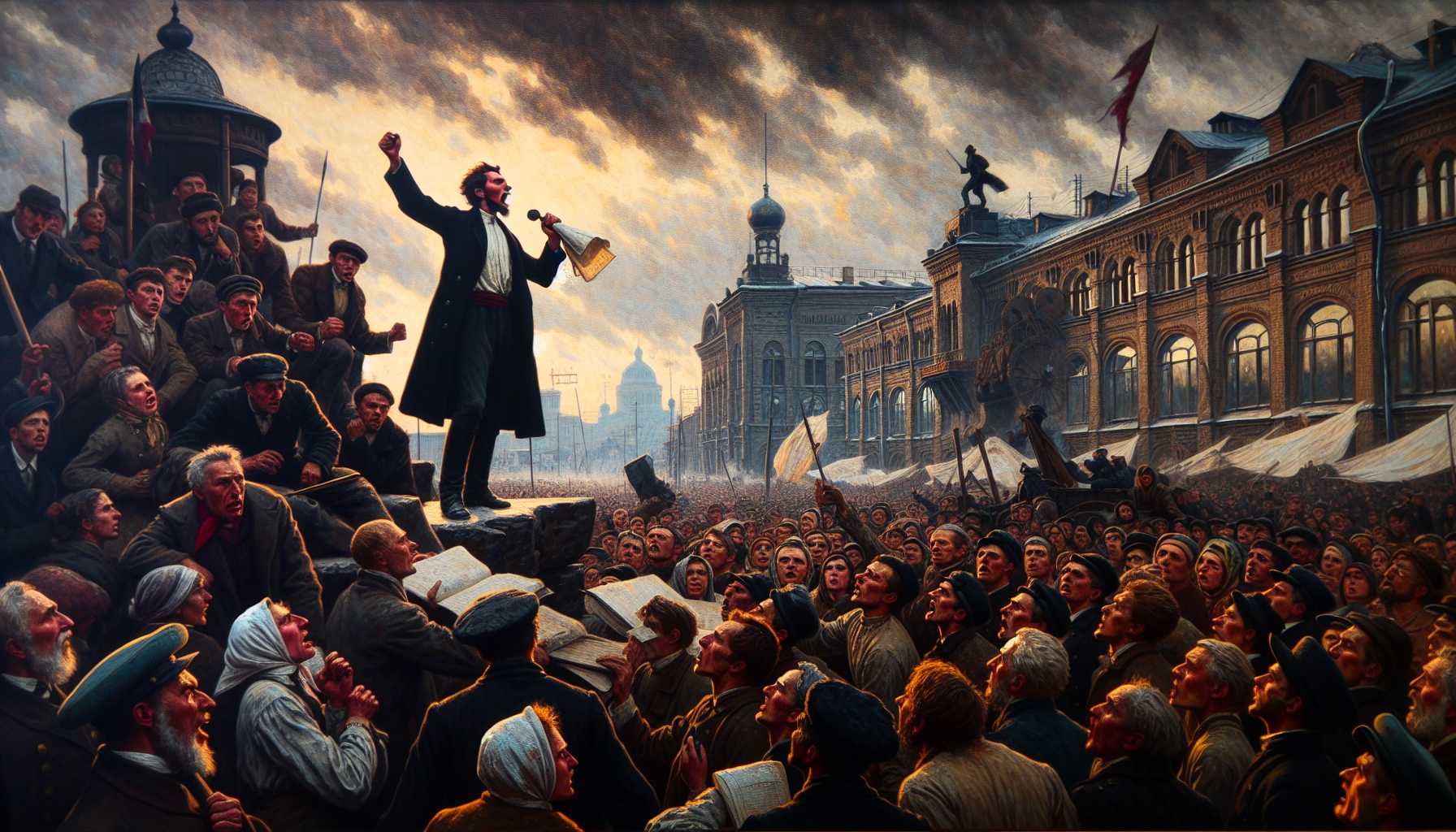
Vladimir Lenin Impact on 20th Century History and Communism
Vladimir Lenin was a pivotal figure in 20th-century history.
beuladimir rein-eun 20segi yeogsaui jungchujeg-inmuli-eotseubnida.
블라디미르 레닌은 20세기 역사에서 중추적인 인물이었습니다.
He is best known for being the leader of the Bolshevik Party and the architect of the Soviet Union.
geun-eun bolsyebikidaeng-ui jidoja-ija soryeon-ui geonchugaro gajang jal allyeojyeo issseubnida.
그는 볼셰비키당의 지도자이자 소련의 건축가로 가장 잘 알려져 있습니다.
Born in 1870 in Russia, he became involved in revolutionary politics in the early 1900s.
1870-nyeon reosia-eseo taeeonan geun-eun 1900-nyeondae chobane hyeogmyeong jeongchi-e chamyeohage doeeossseubnida.
1870년 러시아에서 태어난 그는 1900년대 초반에 혁명 정치에 참여하게 되었습니다.
Lenin's revolutionary fervor led to the 1917 October Revolution, which resulted in the Bolsheviks seizing power and establishing a communist government.
rein-ui hyeogmyeongjeog yeolmang-eun 1917-nyeon 10-wol hyeogmyeong-eulo ieojyeossgo, gyeolgwa jeogeuro bolsyebikideul-i gyeonglyeog-eul jangakago gongsandang jeongbu-reul suriphage doeeossseubnida.
레닌의 혁명적 열망은 1917년 10월 혁명으로 이어졌고, 결과적으로 볼셰비키들이 권력을 장악하고 공산당 정부를 수립하게 되었습니다.
Lenin implemented significant reforms and policies aimed at restructuring Russian society and economy.
rein-eun reosia sahoe-wa gyeongje-reul jaepyeonseonghagi wihan jungdae-han gaehyeog-gwa jeongchaek-eul sihaenghaessseubnida.
레닌은 러시아 사회와 경제를 재편성하기 위한 중대한 개혁과 정책을 시행했습니다.
His leadership during the Russian Civil War (1917-1922) solidified his power but also resulted in widespread violence and hardship.
reosia najejeon (1917-1922) dong-an geuui rideosip-eun geuui gyeonglyeog-eul gochakhwa haessjiman, ttohan gwangbeomwihan pognyeok-gwa gotong-eul chorhaehassseubnida.
러시아 내전(1917-1922) 동안 그의 리더십은 그의 권력을 고착화했지만, 또한 광범위한 폭력과 고통을 초래했습니다.
He introduced the New Economic Policy (NEP) in 1921, allowing limited private enterprise to stimulate the economy after the devastation of the civil war, while still maintaining state control over major industries.
geu-neun 1921-nyeon-e saeroun gyeongje jeongchaek (NEP)-eul doibhayeo najejeon-ui hwangpyeohwa ihu gyeongje-reul jageukhagi wihan jehan-doin mingan gieob-eul heoyonghaessseubnida.
그는 1921년에 새로운 경제 정책(NEP)을 도입하여 내전의 황폐화 이후 경제를 자극하기 위해 제한된 민간 기업을 허용했습니다.
After his death in 1924, Lenin's legacy continued to influence global politics, with the Soviet Union emerging as a superpower.
1924-nyeon geuga samanghan hu rein-ui yusan-eun soryeon-i gangdaegug-eulo busanghamyeonseo segye jeongchi-e gyesok eungyeong-eul mijyeossseubnida.
1924년 그가 사망한 후 레닌의 유산은 소련이 강대국으로 부상하면서 세계 정치에 계속 영향을 미쳤습니다.
His theories and practices laid the groundwork for future communist movements around the world, although his approach was often subject to criticism for its authoritarian tendencies.
geuui iron-gwa silcheon-eun segye yeoreo got-eseo-ui mirae gongsanjuui undong-ui gichoreul maleon haessjiman, geuui jeobgeun-eun gwonwijuyi seonghyang ttaemune jongjong bipan-ui daesang-i doeeossseubnida.
그의 이론과 실천은 세계 여러 곳에서의 미래 공산주의 운동의 기초를 마련했지만, 그의 접근은 권위주의 성향 때문에 종종 비판의 대상이 되었습니다.
Lenin remains a controversial figure, symbolizing both revolutionary change and the complexities of totalitarian regimes.
rein-eun hyeogmyeongjeog byeonhwa-wa jeonchejuui jeonggwon-ui bokjapseong-eul sangjinghaneun nollan-ui yeojiga issneun inmullo nama issseubnida.
레닌은 혁명적 변화와 전체주의 정권의 복잡성을 상징하는 논란의 여지가 있는 인물로 남아 있습니다.
Based on this article
